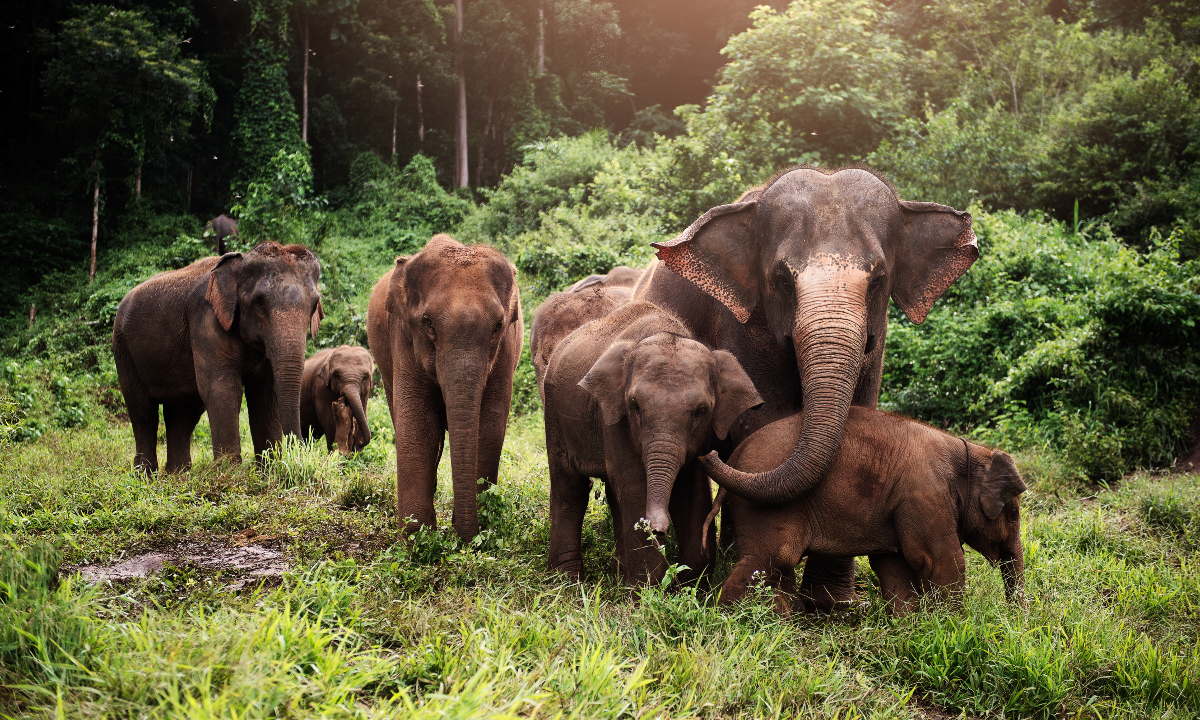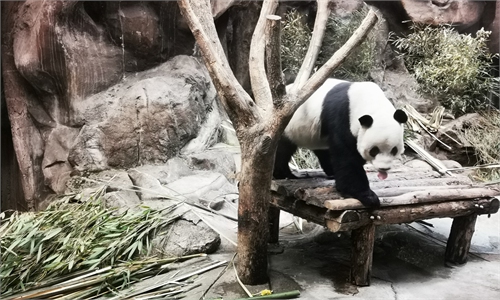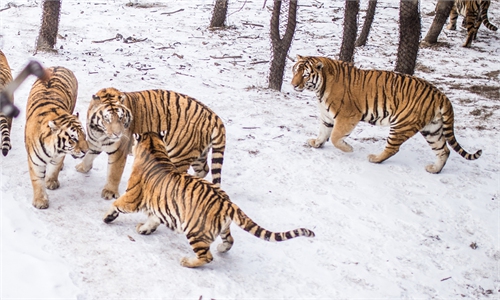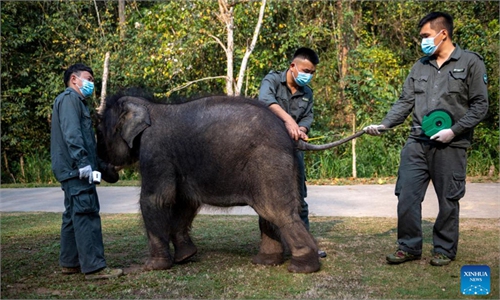China’s first public interest litigation case on elephants opens involving suspected mistreatment of wild Asian elephants

Photo: VCG
The hearing of China’s first public interest litigation on elephants was held in Kunming, Southwest China’s Yunnan Province, on Monday, where a Beijing-based environmental protection organization sued the Wild Elephant Valley in Yunnan, a national park, for mistreatment of wild Asian elephants.
The plaintiff, the Beijing Municipality Changping District Multi-intelligence Environmental Research Institute, pleaded an order from the court to stop the elephant performance training and performance programs and other activities of mistreating elephants conducted by the elephant school at the Wild Elephant Valley in Xishuangbanna Dai Autonomous Prefecture, the defendant.
Meanwhile, the organization also pleaded for an order from the court to demand the defendant to make an apology in the state-owned media for its behaviors of abusing wild animals and infringing on the rights and interests of animals.
The organization also pleaded for an order to compensate or give long-term rehabilitation treatment to the wild animals at the valley, and released the Asian elephants into the nature if they meet the conditions for release.
The indictment shows that the Wild Elephant Valley is located in the National Nature Reserve as well as the Biosphere Reserve under UNESCO’s Man and the Biosphere Programme (MAB). It is China’s first national park with the theme of animal and environmental protection.
According to the plaintiff, the defendant in the public facilities management industry of public welfare but conduct profit-making businesses of training, breeds and performance of Asian elephants. The main purpose of the establishment of the national park is to protect a vast area of national representative natural ecosystem and realize scientific protection and rational utilization of natural resources. However, the defendant actually has long been conducting behaviors endangering endangered wildlife and harming natural ecosystems.
In a patent application of training methods to elephants filed by the park, it repeatedly mentioned the ways of training by hurting the elephants with nails and forcing elephants to conduct acts not in line with elephants’ habits and nature such as walking upright and playing ball games.
According to Sun Quanhui, a scientist from the World Animal Protection organization, animal shows often make animals do things that go against their nature which needs training that can injure them. Since elephants have relatively higher intelligence, they need to be trained from a young age, which can cause permanent damages to their physical and psychological health.
Besides, wild animals for performance can be caught in the wild or can be offspring of wild animals caught in the wild which can never return to nature again after they are trained for performances, Sun told the Global Times on Monday, noting that park-goers’ appreciation for the animal shows also hurt the animals.
A research that the World Animal Protection organization participated in shows that at least 550,000 wild animals are used for entertainment shows around the world every year, and the demand for wildlife entertainment in tourism industry not only stimulates the hunting of wild animals, but also causes a large number of wild animals in captivity to be mistreated and harmed.
The organization thinks that the park’s conduct can not only harm elephants’ physical conditions but also their psychological health and distort their nature, preventing them from living in their natural state, which is contrary to the goals of setting up the breeding base.
However, according to Zhang Li, professor from the College of Life Sciences, Beijing Normal University, the case is more related to the issue of animal welfare since there is no relative laws in terms of animal domestication in China at present.
Since there is no related article about mistreatment of animals in domestication in China’s wild animal protection law, so what can be done at present is more from the perspective of animal care and being kind to animals, Zhang told the Global Times on Monday.
Whether the lawsuit against the park wins or not, it still marks a milestone in wild animal protection since wild animals are not commodities used as tools for making profit, and being kind to animals is an important sign of social civilization and progress, Sun said, hoping this case can promote the Chinese legal system to protect animals.
Statistics show that as the first-class national protected animal as well as endangered species in the Convention on International Trade in Endangered Species (CITES) of Wild Fauna and Flora, the population of Asian elephants in our country remains about 300 at present.



